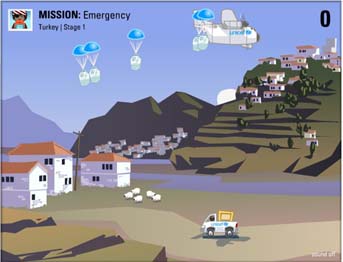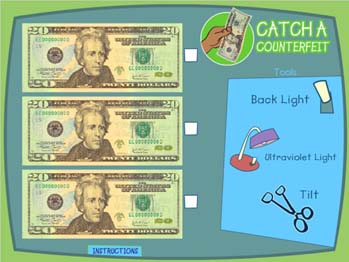I wasn’t surprised by two adverse reactions to the blog entry “The Book is Doomed”; scary news for a lot of people. Think about the jargon embedded in those pieces that deal with e-books, or the cryptic messages that pop-up on the screen when the uninitiated tries to access an actual e-book… In order to read a paper book one doesn’t need to know proofreader’s marks or bookbinding jargon. So, a paper book is friendly. At this point, that seems to be the approach almost anyone takes to the idea of a different kind of book. Even audio books have their detractors, those who say that listening to a book isn’t the same as reading a book.
A couple of news in last week’s Times made me think of issues not yet addressed by the Institute’s site. One is the prevalence of videogames in the lives of children and the fact that the “future of the book” really belongs to those children. For me, finding hot and dusty Internet cafes in the oases of the Tlakamakan desert was, in a way, unexpected. Finding those places full of school-age children playing videogames was a revelation. In “Is Instructional Video Game an Oxymoron?” Matt Richtel talks about nonprofit organizations adopting the game format to advance their agenda. “For the current generation, the Net is the medium, and the message includes ‘Become a Unicef World Hero,’ as conveyed by a game on the unicefgames.org site. He also mentions a shooting gallery game from the American Cancer Society that “lets players flip virtual rubber bands at passing cigarettes in the Smokeout Café,” or the Greenpeace site, where “players can intercept harpoons fired from a Japanese whaling ship – or, by getting three ‘activists’ aboard the ship, force its crew to surrender.” The Bureau of Engraving and Printing lets youngsters color and design currency while learning to spot counterfeits.




“Through online games, we’re teaching a whole generation to authenticate their currency,” said Dawn Haley, a spokeswoman. “It was one easy way to get children involved. Gaming is huge these days.”
 What they are doing is updating the old didactic tradition of using games to teach, they are teaching in the digital age. That brings me to my second thought, is the future of the book the domain of brainy sophisticates or is it a democratic move? In “New Economy; At Davos, the Johnny Appleseed of the Digital Era Shares his Ambition to Propagate a $100 Laptop in Developing Countries,” they mention that Nicholas Negroponte in partnership with Joseph Jacobson, a physicist at M.I.T., wants to persuade the education ministries of countries like China to use laptops to replace textbooks (see also Laptops for the Masses on this blog). At Davos, Negroponte said that he found initial backing for his laptop plan from Advanced Micro Devices and that he was in discussions with Google, Motorola, the News Corporation and Samsung for support. “You can just give laptops to kids,” he said referring to an experiment in Cambodia. “In Cambodia, the first English word out of their mouths is ‘Google.'” In my opinion that is/should be the future of the book.
What they are doing is updating the old didactic tradition of using games to teach, they are teaching in the digital age. That brings me to my second thought, is the future of the book the domain of brainy sophisticates or is it a democratic move? In “New Economy; At Davos, the Johnny Appleseed of the Digital Era Shares his Ambition to Propagate a $100 Laptop in Developing Countries,” they mention that Nicholas Negroponte in partnership with Joseph Jacobson, a physicist at M.I.T., wants to persuade the education ministries of countries like China to use laptops to replace textbooks (see also Laptops for the Masses on this blog). At Davos, Negroponte said that he found initial backing for his laptop plan from Advanced Micro Devices and that he was in discussions with Google, Motorola, the News Corporation and Samsung for support. “You can just give laptops to kids,” he said referring to an experiment in Cambodia. “In Cambodia, the first English word out of their mouths is ‘Google.'” In my opinion that is/should be the future of the book.
(photograph: girls at the Elaine and Nicholas Negroponte School in Cambodia)
if:book
A Project of the Institute for the Future of the Book

At a UK conference I attended a couple of years ago, a speaker described how she had had to explain what an encyclopedia was to a group of primary school children. Their response? ‘Why did they print it out?’
yes, this connection between gaming and reading seems valid. there is a burgeoning body of scholarship that addresses game theory and perhaps it’s no surprise that one of the best representations of this work was recently published in ebr, the electronic book review.